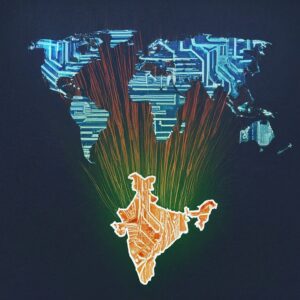
Thre Haryana Coaching Institutes Bill 2024, currently under public consultation and expected to be introduced in the upcoming state Assembly’s Budget session, seeks to regulate private coaching institutes. However, a potentially problematic aspect of the bill is its inclusion of the term “online coaching centres,” raising concerns about its implications for the broader edtech sector.
The bill’s language, reminiscent of the Rajasthan Coaching Institutes (Control and Regulation) Bill 2023, could inadvertently extend its scope beyond physical coaching centers to encompass the entire educational technology or edtech industry.
While the bill’s primary focus appears to be on regulating brick-and-mortar coaching institutes, the inclusion of “online coaching centres” introduces a level of ambiguity. This broadened scope poses challenges for edtech services, as complying with varied regulations and registration requirements across different states, as mandated by Haryana and Rajasthan, becomes impractical. A 2022 research paper by CUTS International points out that regulatory interventions can increase compliance but also result in hurdles and costs due to the duplication or inconsistency of regulations.
The potential consequences of the bill’s inclusion of online coaching centers are underscored by examining similar regulatory challenges in other sectors. Notably, conflicting stances on how to regulate and tax online gaming have emerged among different states’ legislatures and High Courts. A nodal stance from the central government is proposed as a solution to provide consistency in user experience and regulatory clarity. Without a precise definition of “online coaching centres,” the edtech industry risks falling under its scope, subjecting it to a patchwork of overlapping state regulations and potentially burdensome registration and licensing requirements.
However individual states should refrain from setting standards for edtech and dictating how its services are run. Instead, it suggests that states leverage their on-ground policing capabilities to ensure the quality and safety of online services that intersect with the physical world. For instance, apps relying on gig workers should be monitored by states to prevent harm to residents. This approach acknowledges the hybrid nature of digital services, especially in the edtech sector, where online courses are accessible nationwide, while in-person classes may be limited to specific localities.
Highlighting the challenges already faced by the edtech industry post-Covid-19, including funding reductions and layoffs, the article emphasizes that tailoring different courses to diverse state registration requirements is untenable. Drawing parallels with data protection laws in the United States, the article cautions against federalizing all aspects of digital regulation. The decentralized structure of data protection authorities in each U.S. state with relevant legislation results in increased costs for companies, ultimately passed down to consumers. It estimates that compliance with 50 different state privacy laws could cost $239 billion, compared to a targeted federal law at $6 billion.
To address these concerns, this calls for precise and narrow definitions in state laws like the Haryana Bill, limiting their intervention to physical coaching institutes. If states wish to play a role in overseeing edtech, the article suggests coordination with the central government. It draws inspiration from the European Union’s General Data Protection Regulation, which introduced the concept of a “lead supervisory authority” for cases involving data processing in multiple locations. This lead authority collaborates with other concerned authorities while remaining the central point for implementation.
By proposing that district authorities tasked with supervising coaching institutes adopt a similar approach. They can regulate physical coaching centers while deferring to a central authority for standard-setting in the online platform domain. Refraining from mentioning online coaching centres in the proposed Central Guidelines for the Regulation of Coaching Centres, released in January 2024, is cited as a positive step. Ultimately, the article contends that constitutional jurists need to devise ways to reconcile existing rulemaking systems with the digital landscape’s evolving reality, challenging traditional notions of inter-state trade and commerce.










